About This Episode
Welcome to the latest edition of Housing After Dark. I’m your host, Alex Schafran. Today’s guests, Jill Shook and Phil Burns from Making Housing and Community Happen (MHCH) in Pasadena, came to me by either happenstance or divine intervention, depending on your perspective.
Jill is the co-founder of MHCH, someone with a background in ministry who became a houser because people in her community needed her to be. She’s the editor of Making Housing Happen: Faith Based Affordable Housing Models and a contributor to Gone for Good: Negotiating the Coming Wave of Church Property transition. Philip Burns is a practicing planner and the principle at the Arroyo Group, and one of the leaders of the Congregation Land Committee at MHCH, a group whose work we will discuss at length today.
I met Phil Burns in a line at Housing California, when he introduced himself with the greatest line possible, “Hi, I listen to your podcast.” It turns out that Phil not only listens, he happens to be working on one of the most important housing issues in California, one I have been hoping to feature on the show—the implementation of SB4, the recent bill which many, myself included, hope will launch a historic wave of affordable housing development on land owned by churches, synagogues, mosques, ashrams, temples and other religious communities.
SB4 is important on so many levels—it is part of a wave of streamlining legislation, and a good test to see to how and where streamlining really works to produce affordable housing at scale. Along those lines, it’s a test of our ability to really implement legislation, and to build the kind of implementation coalitions which often get forgotten after the bill is signed. For SB4 to be successful, it will require intermediaries—like Making Housing and Community Happen—who can work effectively and ethically with religious organizations to help them build housing in a way that makes sense to them, and to help them avoid the many pitfalls and predators which can undo any housing development dream. And it is a bill that can and hopefully will be different on a moral or ethical level. SB4 is not just another streamlining bill—one can hope, perhaps naively, that by bringing more institutions with morals and ethics and community service in their DNA deeper into the housing system, we can nudge a system that is too often cruel and exploitative into a space that lets us all sleep better at night, literally and figuratively.
Thank you to everyone for joining us. I hope you enjoy today’s conversation. If you enjoy it, please give us some love on social media or pass it along to other housers in whatever way you can.
This Episode’s Guests
Interview Transcript
Alex Schafran: I’m really excited for today's conversation about SB4, affordable housing and faith lands, with an emphasis on faith as much as an emphasis on land. My two guests today, Jill Shook and Philip Burns are part of making the housing community happen, and the congregational land committee specifically. And I'm just really excited to have you both here. Welcome to Housing After Dark.
Phil Burns: Thank you so much, Alex.
Jill Shook: Thanks, Alex.
Alex Schafran: Jill, let's start with you. How did you get involved in housing work?
Jill Shook: It started with the children in the neighborhood around Lake Avenue church in Pasadena. I was fortunate to come back from living in Mexico, and I felt like I was in heaven in that neighborhood. It was like little Mexico. I spent hours getting to know kids in that neighborhood and their families, and started an after school program in 96. We were doing great, kids' lives are being transformed. But when they were getting to high school, a lot of them dropped out. And and I thought you know, “Are we not doing a good job?”
And the issue really was the cost of housing. These youth and their families, their whole apartment buildings were being sold out from under them. They were having to leave our city. When I was starting the after school program, I traveled all over the country to research after school programs that were faith based. I couldn't help but notice that so many of these churches had affordable housing. And I thought, “What can we do? Maybe we can do something to keep these youth and their families in our neighborhood.” That’s when I learned that there was an affordable housing complex that was faith based in their neighborhood called Agape Court.
Agape is the Greek word for love. There were 44 units total, and there were openings. So I started moving families there and their lives completely transformed. They had time for their kids. There was a little after school program in there as well. There was a pool. There was a pastor living there. There was just all kinds of support for these families. It was truly transformative. When I tracked these kids that had moved in there, every single one of them were the first in their families to ever graduate from college. And so I thought, “We need more of this amazing affordable housing.”
So I joined an advocacy group in 2000. My life has been incredibly busy ever since. It was much later, when we had started an ADU team and delivered on that, an inclusionary team and accomplished our goals around that. We did all kinds of things. But then, I noticed what churches were doing around the country but thought, this is the big secret. People need to know what churches are doing. So that's when I put together this book.
It's called Making Housing Happen: Faith Based Affordable Housing Models. It's been used on campuses around the country. Every chapter is a different model, a different denomination, very broad based and a whole theological framework for land use.
One day, I sat down with Phil, and I thought, “I don't want to just write about it, I want to do it.” God was moving in my heart. I couldn't help but think about it day and night for a long time. That’s when there was that sense of call, that there's something stirring in me. So I I met with Phil and he said the same thing was stirring in me too. So we teamed up. And that's the story, how Phil got connected.
Alex Schafran: It’s interesting we actually have more in common in our stories that I perhaps realized. I also spent a lot of time writing about the problem and now I work in the problem much more directly. For our listeners, there's also another book Gone for Good? Negotiating the Coming Wave of Church Property Transition.
Phil, tell me a little bit about your story.
Phil Burns: For me, it also has to do with faith. When I went to college, I was a physics major, actually. But my second year in college, I was put in charge of leading a Bible study for the Christian group and my school. As I started to actually have to read the Bible and study, in particular, the stories of Jesus in the four gospels—Matthew, Mark, Luke, and John—every time I would read it, it would be just like, every page, talks about Jesus having a heart and passion for somebody that's down and out, somebody that's poor, somebody that's marginalized, somebody that's an outcast. Those words would just jump right off the pitch and jump right into my head.
As that was happening with me, it became sort of clear to me that I didn't really feel like I could waste my life just doing physics research, or teaching for the rest of my life. And so I began to look for other things that would really fulfill this growing sense of call towards people who are less fortunate and helping them. Eventually, I served in the Peace Corps, and I was part of the liberation theology thing in South America for a while as well. But ultimately, what I ended up doing in my career was urban planning because, as we all know, planning is maybe not the most sexy thing, but it is very important. And it really is local policy.
Pasadena is a diverse community. But it’s known for its old money set. As I got into planning, I remembered as I grew up here in Pasadena (Jill and I both live here in Pasadena), anytime you would say you were going to downtown LA, or someplace in Los Angeles, people would say, “Oh, you're gonna get shot.” Things like that. It irked me so much. That there was this classist and racist and dismissive attitude.
Then I went to fancy a prep school and high school on the west side of Los Angeles and I remember that one day, we went on a field trip and we crossed from West Hollywood east into Hollywood and somebody said, “Oh, where are we? I've never been this far before.” Meaning never been this far east before.
The issue of inequities in our cities has always been just a huge interest of mine, and something that I've felt a call towards. I got into urban planning and was fortunate to have a great mentor named Larry Morrison, who ran a planning and urban design firm called The Arroyo Group. I worked with him for several years. There were some leadership changes in the firm and interestingly, when Larry came to retirement age, he left the firm to me.
For the first couple of years, I had to work very hard as a young sort of entrepreneur, even though I was taking over a company that had been there for a while. Business was a little slow. When Jill came to me and said, “Hey, this has been on my heart that we work with churches.” And when she said that, I realized: a) this feels exactly like what my call is too and b) I actually don't have that much work right now. I actually have space to try something totally new. So I believe God was preparing the time for us to get together and start this.
Alex Schafran: It's always really interesting to me now with a lot of housers that I meet, it's some sort of similar story. It’s some combination of a moral imperative that may or may not come from the housing space. One of my main interests in SB4, is I'm the board co-chair of an immigrant rights organization that is in the basement of a church, and that was heavily influenced by liberation theology, very connected to the history of the genocides in Guatemala, and El Salvador, and very much part of that sanctuary movement.
Now, that was a part of me as a secular agnostic Jewish kid from a similarly upper middle class location, not necessarily upper middle class family, but geography that had similar ideals. And this merged with my very long amount of professional training that happened to also be, like Phil, in planning. And now finally, it feels like it's really starting to come together.
So Jill, tell me a little bit about Making Housing and Community Happen. Tell me a little bit about that background that eventually then started to partner with Phil and others around specifically building housing on faith land.
Jill Shook: I appreciate what you're saying to that whole liberation theology, I had courses in that and spent time throughout Latin America. I think so many of us have these interesting routes that shape our lives so dramatically. But Making Housing and Community Happen came out of some of that.
So the Quakers are known as really putting their actions where their mouth is, making sure that they do transformation. There’s a beautiful arm of the Quakers called the American Friends Service Committee. They had an office in North Fair Oaks here in Pasadena. And they started this little group, they hired somebody to help lead it. It was called AHA, Affordable Housing Action. And then it later morphed into different names.
But just as a grassroots group for years we met, we got a lot done. We worked on ADU policy, inclusionary zoning, tenant protections, we worked on several master plans. If you look at the history of all we've done, it's quite significant. Today, we have just four teams, and we've put to bed a number of others because we've accomplished our goals. But the four teams we now have are, first, safe parking. So that's a faith based use of a church parking lot. We have an amazing pastor at a Lutheran church who saw the need, and even though it wasn't yet illegal use, she said, I’m going to do it anyway. And we said, “Okay. If you know the consequences, we will support you in it.” And so we started the program. We found partners to do the case management and supply everything we needed. In the process, the parkers became the advocates, and they went to the city council, and they're the ones that made it legal, which is so beautiful. That that program continues.
We also have our advocacy part. As you know, there's a very strong NIMBYism in our state. In order to counteract or counterbalance that, you need an army of “Yes, let's make this project happen.” We've seen over 235 units approved, most of those permanent supportive housing. We've been able to lower our homeless count in the period of 10 years by over 50%, because we have such a high percentage of permanent supportive housing.
Our third team is more of a community development and community organizing effort in a section of our city that is primarily African American, at least historically, and Latino. It was once a thriving Black main street that's been completely really devastated by historic racialized policies. We’ve been working closely with Phil and putting together a beautiful vision plan over all of our work and our organizers we've hired over the last eight years and all the surveys (over 1000 household surveys, and one-on-one surveys) truly listening to what that community wants. So they want to slow traffic, they want affordable housing, they want to bring those businesses back and they want to beautify the area. So we have a plan that will do that. And we're shepherding that through to getting that specific plan approved.
And the final team is the newest and that is our congregational land team. When I approached Phil, it was just like the Spirit moved in powerful ways, lead us to all these amazing people that felt the same call and joined our team. Our team meets on a regular basis, we have now had over 90 churches approach us wanting these abilities, we got supplied funding to make this happen (could always use a lot more so we can not only help our team, but our partners, the apprenticeship program that we have). We're mentoring and apprenticing teams in Colorado, Texas, Northern California and Washington State. It has been thrilling. So we met with them this morning for the apprenticeship program. We're all kind of learning together and helping to support those teams to also thrive.
Alex Schafran: Excellent. So Phil, would you give us just a little bit more of the background about what the congregational land committee is, and what y'all are doing? I'm particularly curious that you run a planning firm, this is what you do for a living. And I'm curious kind of how these two things interact?
Phil Burns: So I'll explain first about the committee. We serve as advisors to congregations that are interested in developing their land into affordable housing. We take them all the way from, typically a pastor or a board member (they have different names in different denominations) will come to us at the very beginning and say, “Hey, I really think we should do something about this housing problem. And you know what? We have a lot of vacant parking spaces in our church. That education building that we once filled up with 10 Sunday school classes now, we only have one, if we're lucky. Is there something better we could do with this land?”
So we take it all the way from that, all the way to the congregation having a plan for the building and developer with whom they’ve negotiated a fair agreement. Big picture, we focus on building consensus with the congregation, doing visioning and feasibility about what they want to have built on their land, and ensuring that can be built. Secondly, representing the congregation in selecting a qualified and prepared affordable housing developer in representing them and making sure they get a fair deal for the use of the property.
Alex Schafran: I imagine that there are some similarities between many of the churches. I know a lot of organizations have aging congregations. Maybe they're not having quite some of the same uses. The case that I am more intimately familiar with, through my board work, is actually even a deconsecrated church. The church was merged by the parent with another church and area because of declining membership and now we're talking about three buildings on a half a city block of land, right kind of in the downtown.
I also know for instance, in my neighborhood, we have a lot of really important legacy of African American churches in a neighborhood that has sadly gone through a fair amount of gentrification and displacement and people leaving, for in many cases better pastures and other places. I know that there are questions for them about exactly to what extent something like an SB4 project could bring people back into the neighborhood that may have left. Are you hearing a lot of different stories from congregations? Or are there certain themes that you hear that are pretty similar that you think are important for the rest of us in the housing community to understand?
Jill Shook: I think every church is so unique. Part of our process is a cohort, we do that twice a year, one in the spring and one in the fall. And we invite churches that look pretty promising as possibilities to join, it's five sessions now that we do. It's educational but it's also workshopping. So we explain, for example, what is zoning? And what is zoning discrimination? And what's the history of that? And is that happening in your neighborhood? What is the zoning at your church? I'll go deep into different topics, then we look at all the different populations that affordable housing can serve, and how to how do you look at that in terms of what your mission is. For the church, are you interested more in seniors, in family housing, there's lots about big enough to do that, permanent supportive housing. There are all different populations you can serve and we want to make sure that's connected to the church, and whatever their vision is it's not about our vision, it's not about the developer's vision, it's about the church's vision.
So we help them go through this process to see what really is their church about. Sometimes they're not even clear on this. This helps them begin to clarify kind of who they are now at this stage of the lifecycle of their church. But as we continue we look at the financial feasibility of these projects and we want to make sure that will happen, that they aren't just on paper. So we look at what that looks like—the financing of affordable housing.
Then on the last day of the cohort, we bring in have zoning maps for each congregation, and we have the folks from their congregation sit around a table with a map. And we have professional architects that go around and help them imagine with tracing paper, we could do this, and this. And they go, “Okay!” Then the next architect comes by and helps them imagine another scenario. So it just gives them enough juices to start thinking, “Do I really want to go down this path.” Then they might go to the next phase of signing that agreement to work with us to help them go to the deep feasibility phase until it gets all the way to the development agreement.
This last fall, just to give you an idea of how every story, every church, every congregation is so unique. We had two Episcopal churches last fall, we had one Hispanic church, we had two Presbyterian churches, one was Korean speaking, we had one United Methodist. But, but to see the diversity? And then this time we have a we have a Southern Baptist Church. That's delightful, you know, and the pastor's Palestinian, who would have thought! We have a Muslim congregation, we've also had Jewish congregations. So it's just thrilling to see who ends up being interested and in every situation. There is no cookie cutter. You know, if it's out in the desert, you end up with really low density. If you're in downtown, you might have really high density, you don't need SB4, you've already got way beyond what you need.
Phil Burns: Broadly speaking, there are of course, two like broad sets of motivations for wanting to do this, one being missional. And that's why that's why this is such an important thing in the housing ecosystem. You have a mission-minded landowner, and there's not that much property in general where the landowner is going to consider factors beyond the bottom line in making a transaction. But the other half is the economics, the economic difficulties that congregations are going through.
Some information about that, which comes from the book Gone for Good. In it our coauthors talk about the scope of the issue at a nationwide level. And one of them Eileen Lindner, she estimates that 100,000 churches (just looking within Christianity) are going to close or church properties are going to be sold by 2030. That might account for roughly a third of churches that are out there today. Church attendance has declined precipitously in many denominations and in overall, we're now under half of the population in the United States as members of a religious congregation.
All of those things create real financial pressures on these organizations. They have to pay pastors, they have to maintain, in many cases, very large, old and expensive buildings. And that's really forcing difficult conversations.
Alex Schafran: I am excited to come back to that question of these pressures. Phil, I know that we've talked in the past about concerns you have of what you've seen in the past about how sometimes churches can be nudged and pushed into land deals that aren't really advantageous either to them or really to the community. I know that that's been part of the motivation for setting up this infrastructure that you've built, which is to make sure that the congregations are getting professional expertise. Since a lot of our listeners are going to be professional housers, maybe not professional religious folks, I hear a lot of the use of the word “discernment” as a sort of the official religious word for this process by which people think about it. I really love this concept. And I think it’s a really useful word for housers to think about, which in some ways is a different type of process to think about housing that I think really works in the religious community.
And Jill I really appreciate also the flagging up about how ecumenical this is, I mean, this is maybe a perfect time to shout out Abram Diaz, maybe it was because he was Abram from NPH (Non-Profit Housing Association of California) at the time now working for Assemblymember Gabriel, able to unify so many different people of the book in a very difficult times to all get behind affordable housing. And just so you know, I'm also really excited for our religious communities that are not people of the book, like, I can't wait to see what the Gujaratis are able to do, especially in the Central Valley with a lot of the land that they owned. I think we can do some really radical things across all people of faith.
Many of the people who listen to this podcast are more in the kind of technical assistance professional housing scene, what are some of the things that you would like fellow housing professionals to understand about working on SB4 projects, about working with faith communities? I think we all agree this is not just another streamlining. his is not just another upzoning. Whether or not you're in favor of those other upzoning (I am), this isn't AB2011, or AB23, or SB35, or all the other acronyms and jargons. It's different. So what is it that makes it different? What is the message that you all both consent to professional housers, about how to engage in SB4 projects with congregations, effectively? And I think also, ethically?
Phil Burns: I'll start by asking folks, whether they are housing developers, housing advocates, whether they are in the public sector to recognize the value of faith institutions, as faith institutions have receded in terms of their influence and size. We have also begun to see some of the implications on the societal implications of that, in increased loneliness and depression. Not to say that all of those things derive from detachment from religion but it's a part of it.
Faith institutions beyond that really provide many, many services to local communities for, many times, at a fraction of the cost or even for free compared to the way that government can provide those services. One of our co authors from Gone for Good from the Partnership for Sacred Spaces, cites a study that they did of many downtown churches in cities, and they found that 87% of the people that went to those churches, that visited those churches, were not members of the church. They weren't there for worship. What were they there for? They were there for dance class, they were there for the music lessons, food bank, winter shelter, or even voting. Churches, and congregations are broadly, they have a great value in our communities.
Whether you are a person of faith or not, we hope that when, let's say a housing developer is approaching a congregation to want to do a housing development on a property that's been rezoned as a result of SB4, to allow for affordable housing development that they see the faith institution as not just a source of land. But as an important part of the services that this community needs that the developer is then going to add something to.
Within that then comes the need to appreciate that that institution is probably struggling financially and so they're going to need to be compensated for that land. We're accustomed to thinking of affordable housing getting built on public land which is often offered up for $1 a year on ground lease or sold for $1 to affordable housing, and that's great, and that's appropriate, excellent. Some faith institutions may be able to do that, God bless them, but most really cannot do that.
Unfortunately, it has been our experience that because faith institutions, pastors, for example, they're mission minded, oftentimes they're excited and motivated, about affordable housing, they're out there preaching about how great it is. I have to imagine that’s such a different experience than a developer going to a private landowner who was just concerned about “How much are you going to pay me for this land? How quickly am I going to be able to close on the deal?”
As a result of that excitement, I think that unfortunately, we have seen that many faith institutions have been taken advantage of in development. And that's unfortunately true for nonprofits and for-profits, market rate development and affordable development. We tell congregations that they should know that they have the right to determine what happens on their land, obviously, within all the other constraints that exist around that, and have the right to explore and determine how their needs are going to be addressed in a new development, that they have the right to lease their land instead of selling if they so desire, at least if that's affordable housing, rental housing, that they don't have to donate the land for free. They don't necessarily even have to discount the sales or lease price from appraised value. And they don't have to take on risk for the development either. And so all of those things are things that a congregation may decide to do, but they definitely do not have to.
Jill Shook: In fact, in working with Abram Diaz, we were there at the very beginning of SB4, initiating and seeing the need for it. We had worked with local jurisdictions, Pasadena and a number of others throughout Southern California, to create an overlay zone that applies to religious lands enabling a higher zoning for religious lands appropriate enough for affordable housing to happen. And we quickly realize that that's a lot to go city by city, and that we really needed to look at state policy.
And so we started a fledgling group that began to look at this and it just kept growing and growing, and eventually became SB4, after three tries. What was so interesting after it was signed in the law, we realize everything that Phil just said. That congregations were absolutely being taken advantage of. So we issued what we initially called a “warning statement”, but we shifted it to “know your rights.” We want to make sure that congregations are aware that they do have value and they do need to honor that value of their land and it is not what a developer would do, in the case of working with a city that would lease their land for $1.
There's a chapter in the book Gone for Good, where we talk in Chapter 14 called A Real Estate Advisory Team. We talk about some of those situations where churches have been taken advantage of to help in a sense, warn churches not to go down that path. But there's also a chapter in here called the Halo Effect that is really interesting, because churches provide so much for communities through AA groups, and on and on. If you were to monetize all that, it really is powerful for churches to see. They don't typically monetize so much of what they do. But that's what that chapter talks about helping you see the value of your land in your resources and what you're doing in the community. Ethically is what you mentioned, I think ethically, it's a fine line. And we do hope that affordable housing developers will truly honor what the Church's vision is, and not just their vision.
Phil Burns: It may sound like kind of bad news for developers or we're just sort of piling on developers, but I actually think that the work that we do is ultimately good for developers. A lot of developers experience in working with congregations has been very frustrating to them because congregations are governed in a million different ways depending on their theological viewpoint, the history of that denomination, but a lot of them are governed by boards. They’re also social and cultural groups that a big decision like redeveloping property, sometimes that involves even demolishing the entire congregation, rebuilding a new sanctuary into the ground floor of an affordable housing development.These are big decisions that can really tear congregations apart.
Developers have often approached congregations and figured out through ten too many meetings, that this is a controversial thing, that this congregation is going to have a hard time really making a decision about what they do or don't want to do. Ultimately that leads to a tremendous amount of risk on the part of the affordable housing developer. We really play that role for the developer, we sort of de-risk it by building that consensus ahead of time and kind of agreeing on what the church or the congregation wants from the development.
Alex Schafran: This may sound a bit naive, but I do interact with enough people in the development community who I think are really looking for a different way of doing development. Maybe one of the reasons why you see some of the bad deals is that a lot of times some of the traditional kind of ethics, if you want to call it in this, of the development industry is to see a landowner that is in a difficult financial situation and they exploit that weakness as a way to push them into a more financially advantageous deal for yourself as a developer to be able to buy low and sell high.
And the logic is that's just business and that's the way property development has worked ethically or morally over time. But I think part of the reason why we have the housing crisis in the state of California is that people have pushed back against that for a really long time when it happens in their community. I don't think there's been enough honesty at times by the property development industry, about specifically why people don't trust them or don't like them. And I think SB4, because there are so many sites, it's so big, it is actually almost at the scale of the problem, that I think especially with intermediaries like you who are able to help both mission driven nonprofits, who are again, themselves not immune at times to some of the stumbles. One of the main industries that built California was in part on building California. I think this is an opportunity to really shift some of the kind of underlying ethics of the real estate industry.
And I'm confident that the forward thinking and the well meaning real estate folks will see this as an opportunity to help change how people perceive developers and development by sometimes going that extra mile and putting in the time and discernment and dealing with more of the process. Better this type of process than all of the lawsuits and CEQA stuff. And all of this, all of the process that we've had in public that hasn't necessarily been productive. This is a much better way of doing it, but it's still gonna require those guardrails.
I particularly appreciate your willingness to also talk about the cases where it goes wrong. I mean, that's just too often a problem that we have in housing is that we always want to tout the good cases without touting the warning cases, because we're afraid that we're going to lose the political momentum and the political support the minute something goes wrong. Not a housing example but when we built BART, there was a fire in the tunnel and everybody jumped off the BART bandwagon. That's one of my big concerns about SB4 is that the minute we hear something that goes wrong, in a community or with a church, that people will start to pull back.
I love that you’re willing to center the good, the bad, and the ugly, maybe again, that's a product of your faith. Faith has often not been afraid of both sides. And I think being able to have that conversation while continuing to push forward will be super critical to the success. This conversation is part of a series that I've been doing on implementation.
We passed a great law shout to Abram, our friends at the Carpenters who came on later in the process who were super important, our friends at the YIGBY down in San Diego, little shout out to my EBHO people, Reverend Sophia DeWitt, Ronnie Boyd who had been working in the faith and housing space for a really long time, and are now I think, like you, getting involved in implementation. It's really important for us to have that kind of conversation.
Jill Shook: You know, you mentioned ethics. I think for us it's absolutely ethics, but it also comes down to biblical narratives, and an understanding of land use in the Scriptures. There are different models, but there is a core principle that ultimately God says the land is mine. And so it's not necessarily ours to say, we want to do this or that, it's really a matter of “God, what do you want? Where do you discern?” So it's partly the congregation coming together, but also in their prayers, and as they come together and discern in their relationship with God, and there's some very radical real estate legislation in the Old Testament that that takes land off the speculative market and resets it every 50 years, the year of Jubilee and Jesus himself proclaimed that year Jubilee and the early Church lived it. They sold land, they had it in common. And right there in Acts Chapter Four, it says that they had no poverty among them. So we look to those narratives. We thought, “Wow, this is part of what the church needs to recognize as part of our message to the world and how do we begin to live that out?” Affordable housing is a beautiful way to do that.
But there are some real advantages for developers to work with churches. There's not only a lot of the NIMYBism is addressed because they already want it and they already know people in the neighborhood. But you also have churches already carry insurance, they don't have to get security on the campus, they don't have to buy the land and advance it, someone's there the whole time they're going through the pre development.
So all these huge advantages make churches sometimes targets because they know that there's some real benefits there. That's why I think we do need to balance we know of an African American church that they were targeted specifically and they're often the ones targeted. They were told that somebody could move in from their congregation. And when you're using public money, that can't happen, that was an unfair promise. And then they were told that they needed to supply an extra $35,000. So they raised this money. And all they got out of the whole deal was basically given away land and a picture of the pastor in the new development. And that's just heartbreaking.
We've heard enough negative stories that we want to make sure that developers honor the church's vision, and their needs around financial considerations and don't put them into the risk. That's why we look at a long term ground lease, and get payments through that, as opposed to a joint venture development, which puts the church at risk. Sometimes you have to do that. But our hope is to primarily look at a system that will take the risk off the church.
Alex Schafran: So speaking of that. As one final question, what are some of the ways whether it's the public sector, state government, philanthropy that could assist organizations like yours to really play that role? What is it that is needed? Are there reforms to SB4? What are the kinds of things that you feel that you need to have to be able to do SB4 right?
Jill Shook: Money. This is not cheap. We spend anywhere between $15,000 to $40,000 per church with all the feasibility. If there was millions that could be put into the kind of work we're doing and get teams like ours going all over the country, that would be fabulous. I wish grant funders would recognize the value of the work for doing typically, they just fund building affordable housing, or pre development, but not necessarily the advisement needed.
Alex Schafran: $15,000 to $40,000 is not a lot of money when you see the price tag of what the actual Church housing is coming in at. If we can get some efficiencies that will come out in the wash. Phil, any thoughts on your end about things you would love to see before we wrap up?
Phil Burns: Local governments around the country, they're recognizing this and trying to try to create offices to facilitate these kinds of partnerships happening. There's one in Atlanta, Los Angeles County is trying to do one and in various places. And we think that's a positive step. But the people that run those things also need to keep in mind what we've talked about today. It can't just be a way to get a certain developer or group of developers a honeymoon deal. It would be better to partner with groups like ours that can really create that whole partnership, which I think is better long term for everybody.
Alex Schafran: And as a final plug for my own self interest. As a board co chair of an organization that is a tenant in a church that will probably come down, paying attention to all of those critical community services, all of those non-housing uses that are happening on church land and just making sure that we're not faced with a decision that we shouldn't have to make which is between vital community space and vital community services and housing. The good news with zoning bill is we can have both and I really hope that everybody involved is able to see that because too often in housing, we're first forced to choose between two things, which are not really choices that we should be having to make.
Phil Burns: We really encourage everyone to think about this from the missional and economic perspectives. I want to say to the congregations, well, sometimes they're just totally sort of flying blind, they don't understand anything about real estate, but they love the mission, and they're just going to make whatever decision may or may not be prudent for themselves to do it.
There's also the opposite in congregations that are completely focused on dollars and cents. You know, it could be congregations, it could be higher levels of church governance that have very little regard for the services that are actually being provided by organizations like yours, or even their own ministries and organizations in the community. In centering the use of congregational land for community benefit, then we can achieve much better outcomes.
Jill Shook: There are some denominations that are running scared. Their churches are closing, and they're wondering how they're going to fund the work they're doing. So they look to congregations to sell as a way to keep them maintain that denomination. We have to empower those local churches to stand strong in their vision and what they want and and it's just amazing work. We hope many more people will jump on board and see the value. And I think a lot of developers are also seeing the value of our work that is saving them time because it's a very slow process. And they don't always have the time to do this.
Alex Schafran: Thank you both so much for being part of this, I'm really excited to follow your ongoing work and the ongoing implementation of SB4 around the state. Thank you both so much not just for the work that you do in Southern California, but for the increasingly the work that you are doing statewide. It sounds like the role you played in making what eventually became SB4 the law of the state of California, really appreciate it.




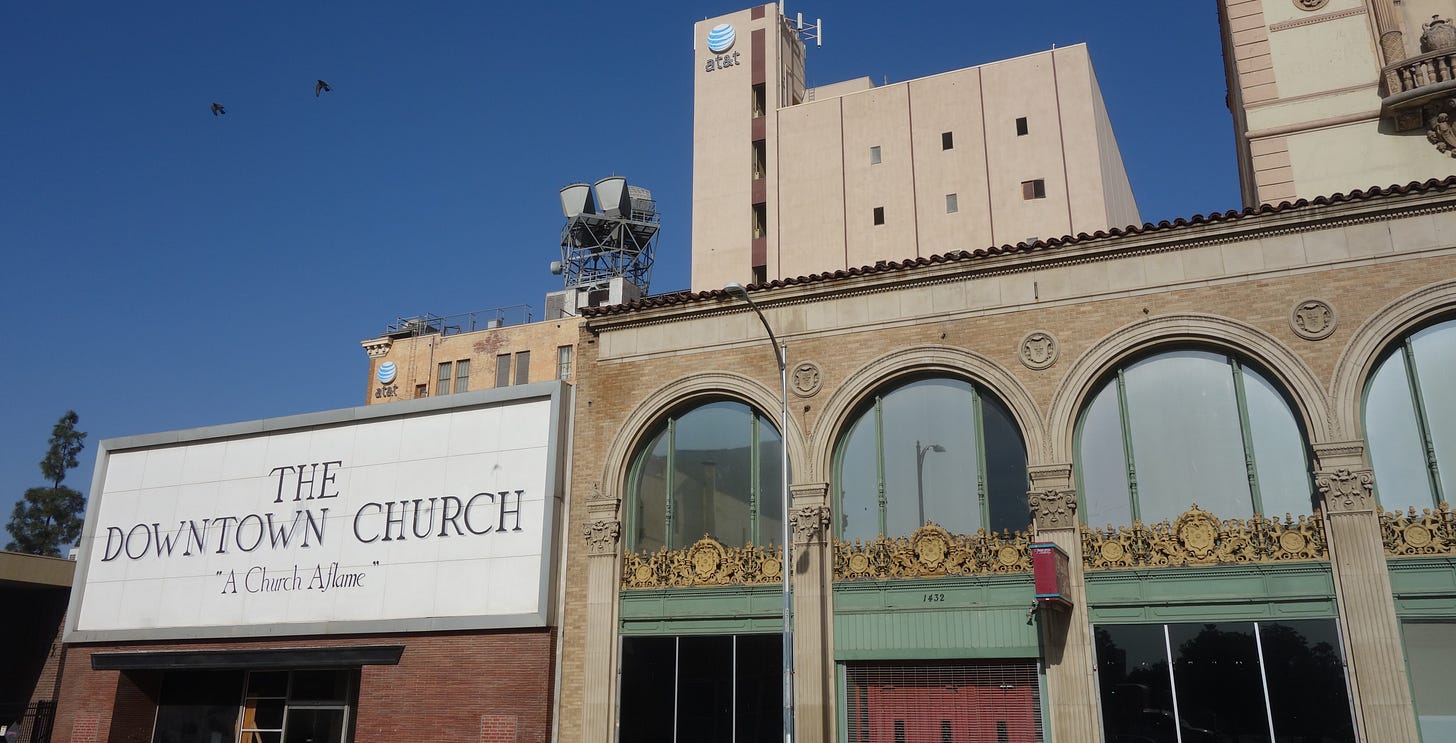



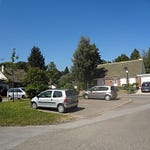

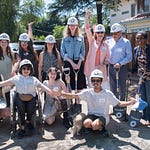
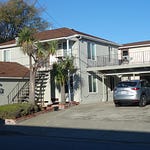
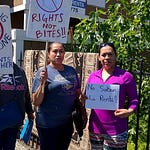
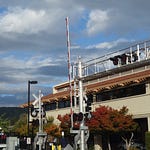

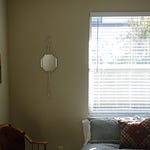
Share this post